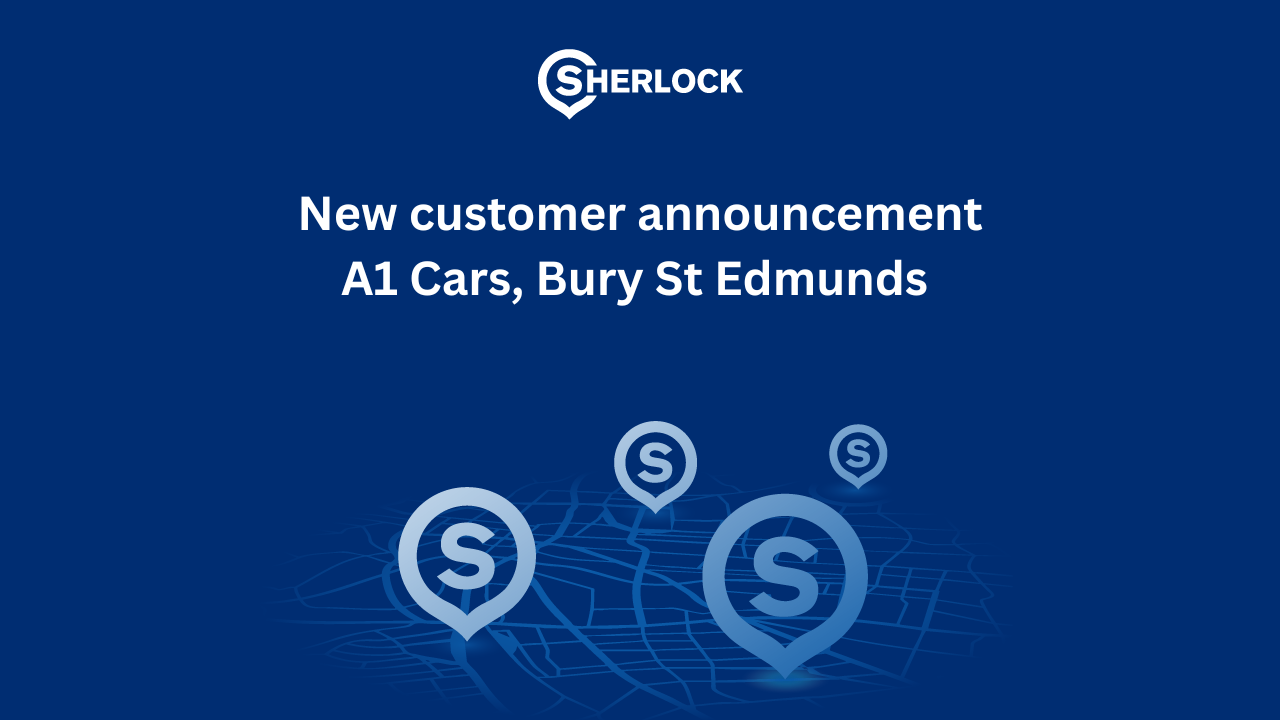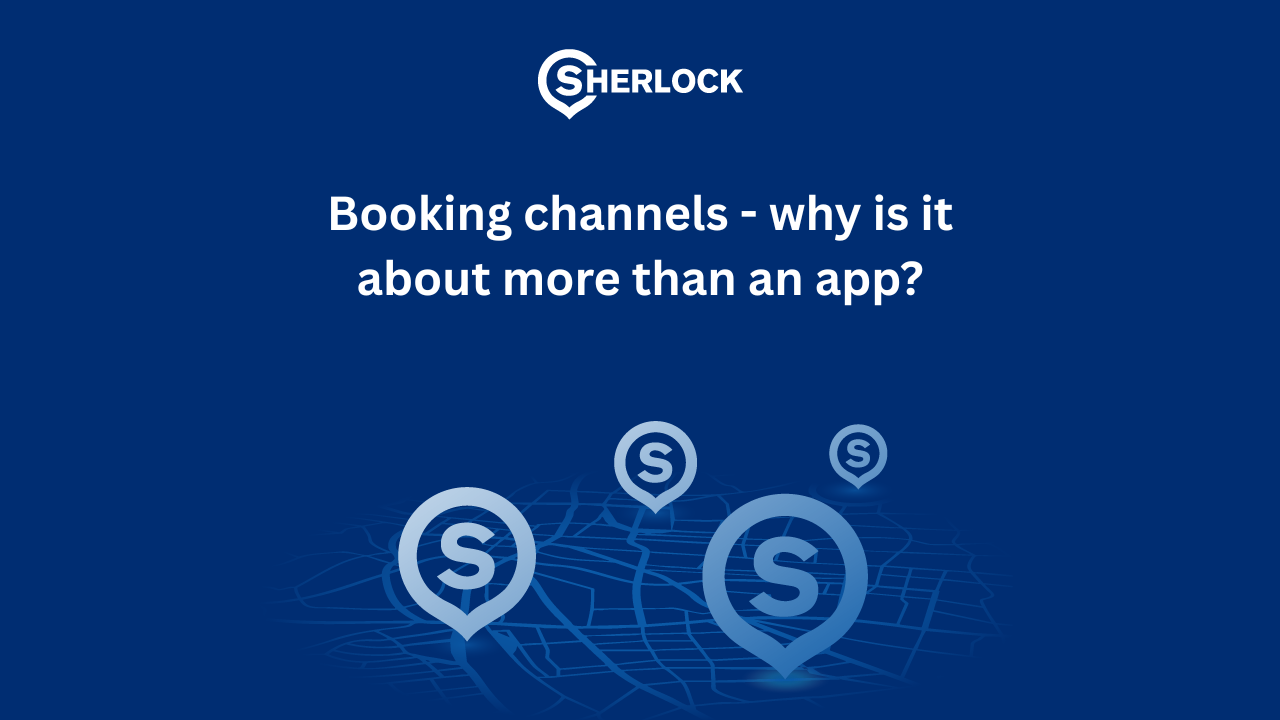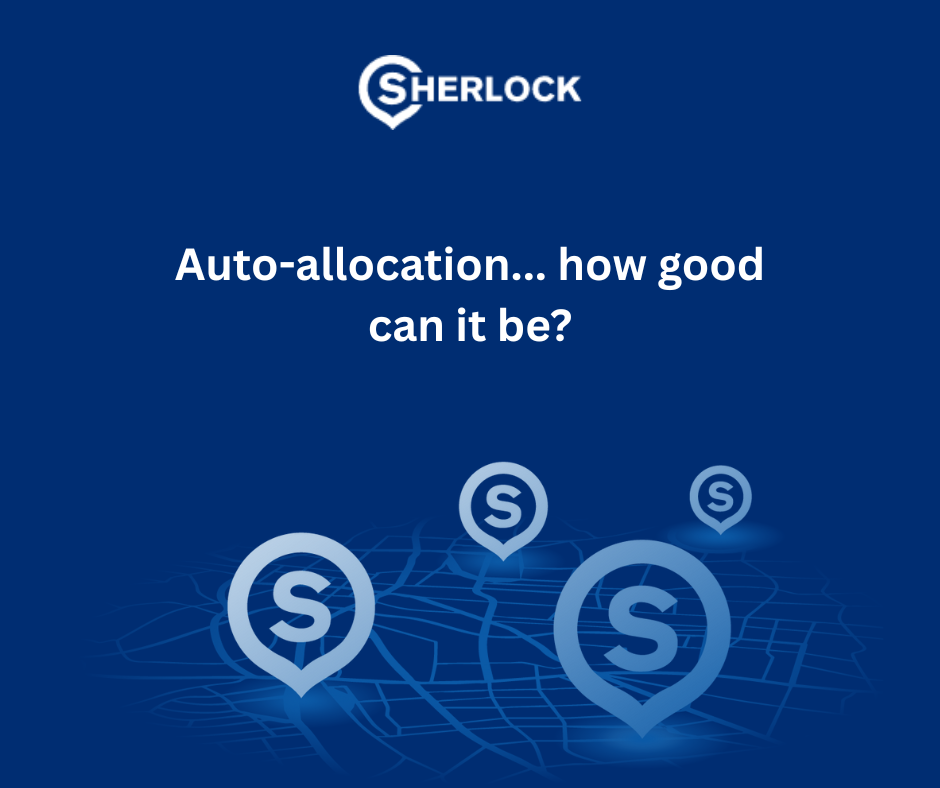What do businesses really need from their booking apps?
In conversations with the industry and topics at recent events, there is a recurring discussion regarding passenger apps. There is widespread belief that many apps are not up to the job of helping businesses to compete with the likes of Uber and Bolt, and more needs to be done.
Where does that belief come from, it is a fair criticism and what is Sherlock doing to support its customers?
Passenger apps are failing and operators can’t compete
Operators want industry leading technology and a central part of that is a reliable, intuitive and accurate passenger app. A core part of attracting new business, apps need to offer a good user experience to ensure passengers use local companies rather than resorting to the ride-hailing giants. This is essential as it enables automation to scale without vast increases in overheads through additional call centre staff.
Despite these ambitions, many businesses feel that apps provided by dispatch companies are not giving them the tools to compete as they are not comparable to those offered by the larger ride hailing companies.
Here are some of the problems that we know businesses are facing:
Performance issues that undermine passenger confidence
Businesses know that if passenger apps don’t meet their passengers’ expectations and needs, it is difficult to simply retain existing customers – let alone attract new business.
Many companies report basic functions not working properly such as not providing accurate and real-time ETAs or real-time vehicle tracking, and the absence of dynamic pricing. Additionally, some even cite frequent crashes and slow loading times which cause a poor user experience. This leaves passengers frustrated and causes reputational damage to operators.
Missing features that undermine growth
Some apps lack features required to support business growth. For example, there are reports of bookings that never appear in the dispatch system for allocation to a driver. Or app bookings being invisible to call centre staff and vice versa.
Some operators also note that they don’t have effective tools to maximise customer retention – for example, the option to offer personalised discounts or re-engagement campaigns to target users who have opened the app but not made a booking.
Limited configuration and options for customisation
With many operators, it is quite easy to see which dispatch provider they use because the apps are very similar with only logo and branding changes. There are dispatch providers that offer little in terms of configuration and this makes it difficult to operate effectively and offer differentiation from the competition.
Inadequate performance leads to failing strategy
When booking apps and other booking channels are not reliable, businesses struggle. Poor features mean that it is difficult to automate more of the operational process and passengers may stop using the app and either resort to phoning to make a booking, or worse, turn to competitors instead. Technology becomes a semi-functioning tool, rather than a strategic advantage.
Lack of features to support corporate clients
There are reports from operators that some system apps do not support the advanced features required to meet the needs of corporate clients. For example, sometimes there is no ability to enforce corporate travel policies such as restricting certain vehicle types based on employee seniority or limiting bookings to pre-approved pick-up locations. This can increase administrative costs for businesses as it requires more manual intervention from office staff, whereas a fully functioning system can help reduce costs by automating corporate account rules and policies.
Additionally, there's often no functionality to input account references or cost centres at the time of booking, nor is there proper labelling of these details in the booking records for easy reconciliation. Without these critical controls, operators risk losing corporate accounts to competitors who can offer more robust and compliant solutions.
Poor technology reduces ability to compete
The biggest issue? These apps aren’t helping established operators compete with other local operators or any influx of the likes of Uber and Bolt in their local markets. Without a seamless, reliable, and positive user experience, some apps leave taxi businesses struggling to meet rising consumer expectations.
How can Sherlock help?
Sherlock’s passenger apps offer an intuitive, smooth booking experience. From day one, they have utilised Google live traffic to ensure accurate, real-time ETAs for passengers and vehicle tracking. Bookings made via the app are visible across all channels and vice versa.
Configuration options are extensive across the entire system, not limited to basic branding and logo changes. Corporate travel policies are configurable and implemented across all booking channels seamlessly.
This sophisticated and seamless experience increases reliability and trust in our customers’ brands and drives up automation. The passenger app is a seamless part of the dispatch system meaning that drivers are automatically dispatched based on best efficiency for the fleet as a whole. This drives up passenger satisfaction and supports retention of clients and the transition to automated booking methods, allowing operators to utilise technology to fulfil the growth ambitions of their businesses.
Gary Brand of A&B Taxis noted within the first few months of using Sherlock,
“Customer feedback for the app is great – our reviews are testament to that. Our reviews on the App Store were 2.6 and now they are up to 4.8.”
Improve your business’ app experience and much more, get in touch today to learn more.



